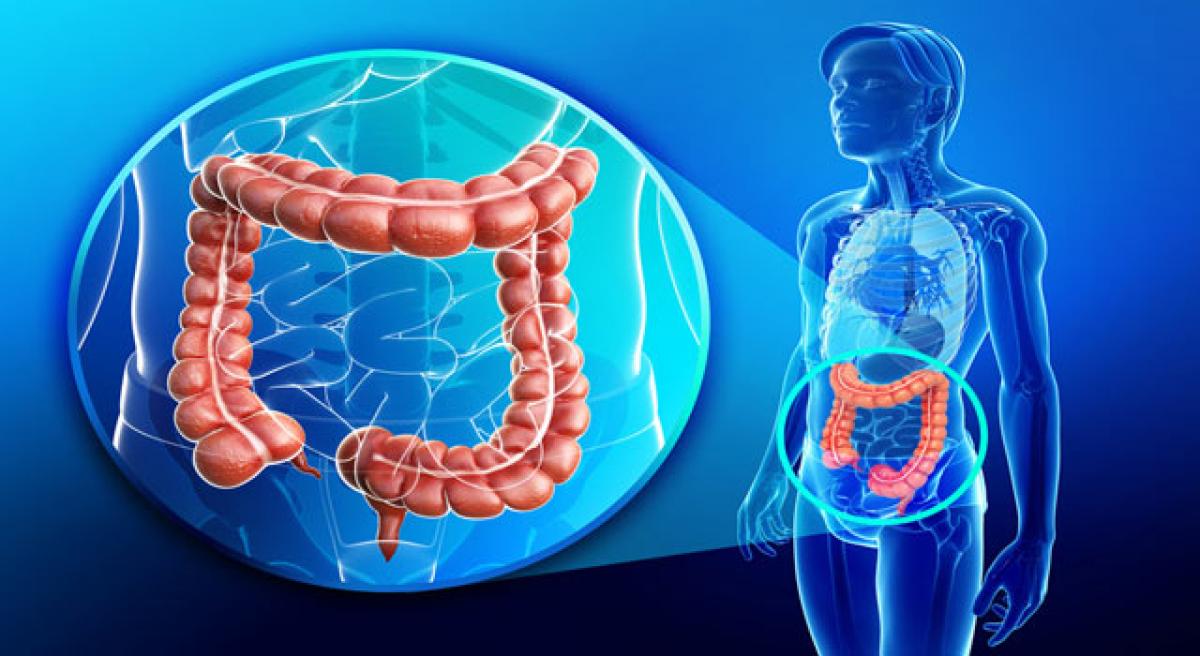Live
- New TTD Trust Board to meet in Tirumala today
- Drone survey held for laying smart roads
- MyVoice: Views of our readers 18th November 2024
- It’s time to defeat betrayers: Revanth in Maharashtra
- Committees formed, assigned tasks
- Let law and order be in sole domain of union!
- Group-III exams off to a smooth start
- KTR invited as guest of honour at TiEcon Kerala 2024
- KTR gets his freedom in a deal done in Delhi: Bandi Sanjay
- Hyderabad Ready to Host FIFA Friendly Football Match Between India and Malaysia
Just In

According to a study published in the Indian Journal of Cancer, colorectal cancer is the fourth most common cancer in men and the third most common cancer in women worldwide.
According to a study published in the Indian Journal of Cancer, colorectal cancer is the fourth most common cancer in men and the third most common cancer in women worldwide.
Dr GovindNandakumar,Chief of Gastrointestinal and GI Onco Surgery at Columbia Asia Hospital sees a large number of patients below the age of 50 years with colorectal cancer.
In India, survival rate for colon cancer is 37 per cent while it is 50-59 per cent in most countries and goes up to 65 per cent in the US. However, doctors say that 90 per cent of colorectal cancers can be cured if diagnosed early and proper precautions are taken to prevent the disease.
“Most colorectal cancers start as a polyp, which is a growth that starts in the inner lining of the colon or rectum. Most polyps are not cancers. Only some polyps called adenomas can become cancerous,” said Dr Govind “Screening are important as it helps in early detection which determines the outcome.
Colonoscopy every 10 years or flexible sigmoidoscopy every 5 years is recommended from 50-75years. For those at high risk, they should get themselves screened after 40 years,” added the doctor.
There are many known facts that can lead to colorectal cancer. It is important to understand the risk factors of colorectal cancer so that proper steps can be taken to prevent the disease.
“Colorectal cancer can be diagnosed by a biopsy of a suspicious area or a polyp by colonoscopy or sigmoidoscopy. CT scan and a blood test called CEA level are essential for assessing the disease. We would also obtain an MRI if there is a rectal cancer.,” said Dr Govind.
The treatment of colon and rectal cancers, depends on various factors like the size and location of the cancer, stage of the cancer, if the cancer is recurrent and the health of the patient. The main treatment options for this are chemotherapy, radiotherapy and surgery.
We are one of few centres in India that take care of patients in a multidisciplinary fashion. We have a weekly case conference with all relevant specialists to discuss and plan treatment. There are several steps that an individual can take to reduce the risk of developing cancer.
Here are some tips from Dr Govind that can help in preventing colorectal cancer:
Have a healthy diet:
Make sure your diet is rich in fibre, fruits, vegetables and good quality carbohydrates. Lower your consumption of red meat and processed meat. You can also switch from saturated foods to good quality fats, such as avocado, olive oil, fish oils, and nuts.
Regular screening: If you have a family history of colorectal cancer, you have Crohn’s disease or ulcerative colitis, you had colorectal cancer before, you are above 60, etc. then you should get screening done regularly.
Exercise regularly and maintain your body weight:
Moderate, regular exercise is extremely important to prevent the risk of colorectal cancer. Being overweight or obese raises a person’s risk of developing many cancers including colorectal cancer. Hence, it’s important to maintain an optimum body weight.

© 2024 Hyderabad Media House Limited/The Hans India. All rights reserved. Powered by hocalwire.com







